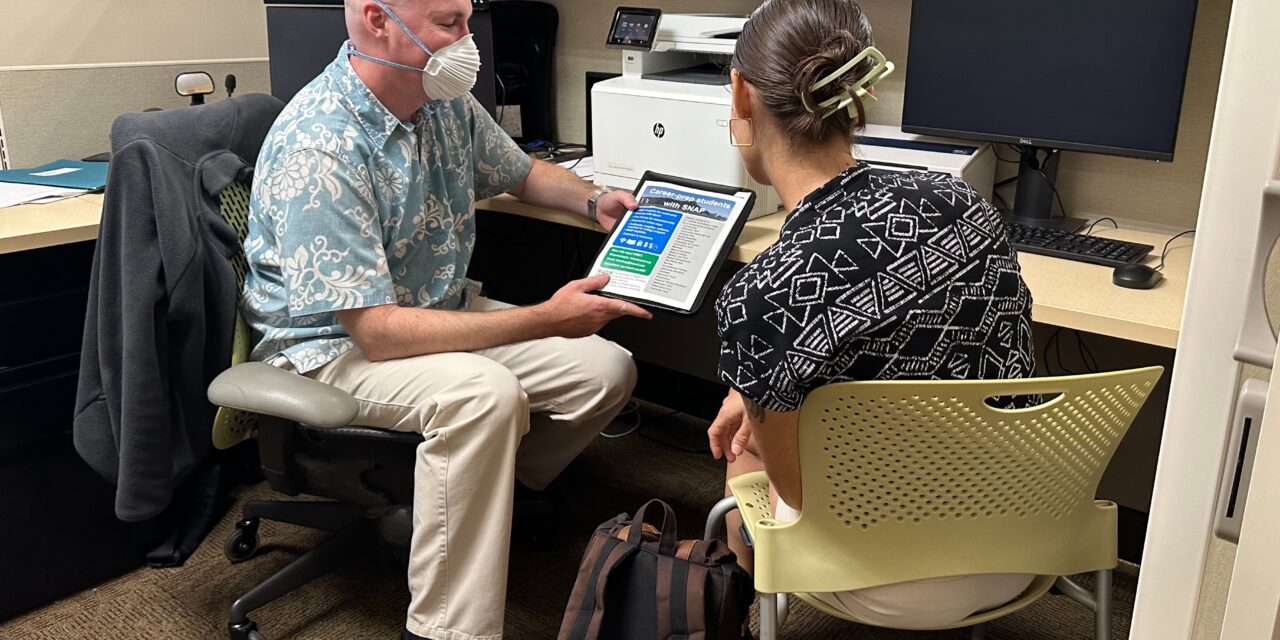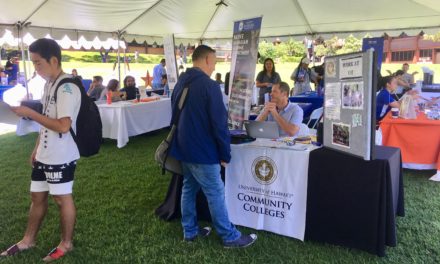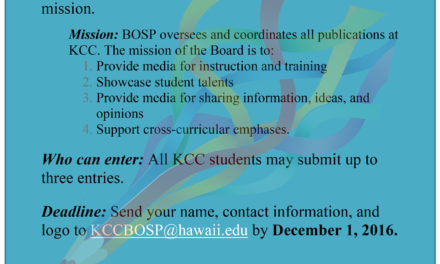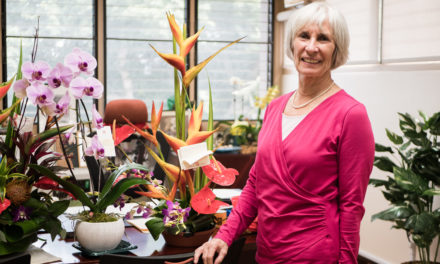KCC HINET coordinator Justin Toombs (left) said he helps, on average, about four students a day find out if they are eligible for SNAP and other cost-saving benefits. (Photo by Sarah Burchard)
By Sarah Burchard | Staff Writer
In 2023, Roger Kainoa Tumbaga was one of 25 students out of 500 accepted into the nursing program at Kapiʻolani Community College. It had been a long road. He had attempted college once at KCC after graduating Radford Hight School in 2010, but said he wasn’t ready back then. During a 10-year pause from college, he began working at Queen’s Hospital as a medical assistant. There, he discovered his passion for nursing, started saving money and returned to KCC in 2023 to become a registered nurse. It took him two attempts to get into the highly competitive program.
Tumbaga, now 31, is the first person in his family to go to college. His first semester back at KCC, he had to take out loans to afford school on top of paying his bills and helping his family with bills – Tumbaga lives at home with his parents and sister. During his second semester, a fellow classmate told him about the Hawaiʻi Nutrition Employment and Training Hoʻola Ike (gift of knowledge) Program, known simply at HINET.
HINET was developed by the State of Hawaiʻi Department of Human Services in partnership with Windward Community College in 2015 to assist low-income students to afford college and acquire well-paying jobs.
“I’m not the one to ask for help,” Tumbaga said. “But then finding out that there is opportunities and seeing that my classmate got it and she was able to focus a lot more on school and a lot of her burden came of her shoulders, I was like, ‘You know, if the opportunity is there why not?’”
To be eligible for HINET, students must qualify for the Supplemental Nutrition Assistance Program (SNAP), formerly called food stamps, which is calculated based on student/household income and housing expenses and varies from person to person. They must also be enrolled in a HINET-approved career program.
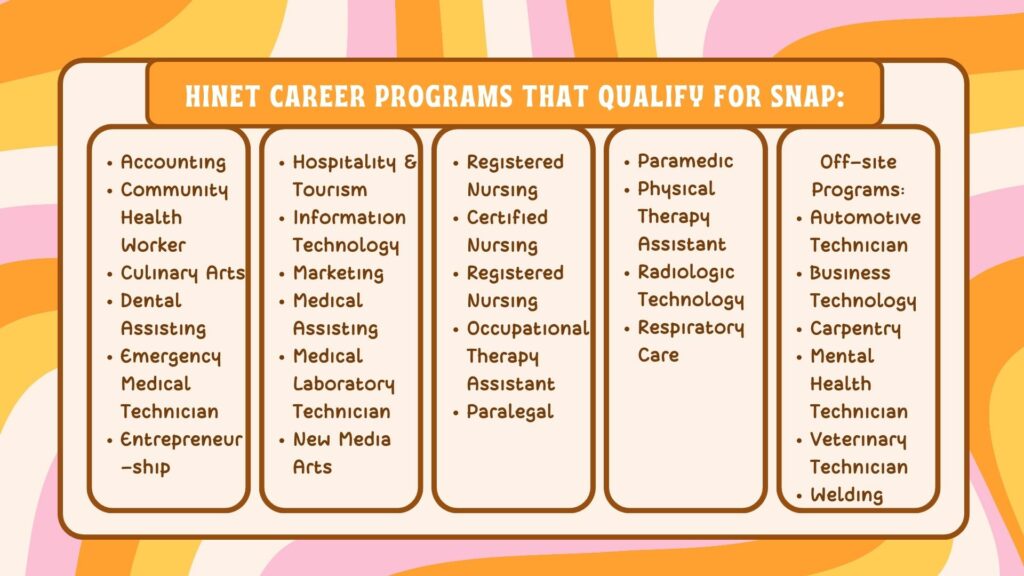
(Photo graphic by Sarah Burchard)
Tumbaga was enrolled in HINET during his second semester. He received tuition assistance; grant opportunities; and school supplies, such as his nurse’s uniform, stethoscope and blood pressure cuff and an EBT card – loaded with $300 every month – to buy groceries with. He was also able to work less at the hospital in order to focus more on school. This led to better grades, which led to more financial and educational opportunities. Tumbaga now not only earns straight As, but he is also the president of KCC’s Student Nurse Association.
If students want to enroll in the program they should visit Justin Toombs, KCC’s HINET coordinator for the past three years. Since the rules of SNAP are always changing and can be challenging to navigate, he suggests students come to see him first rather than trying to apply on their own.
“I love to meet with people to talk through their individual situation,” Toombs said. “Because it gets complicated.”
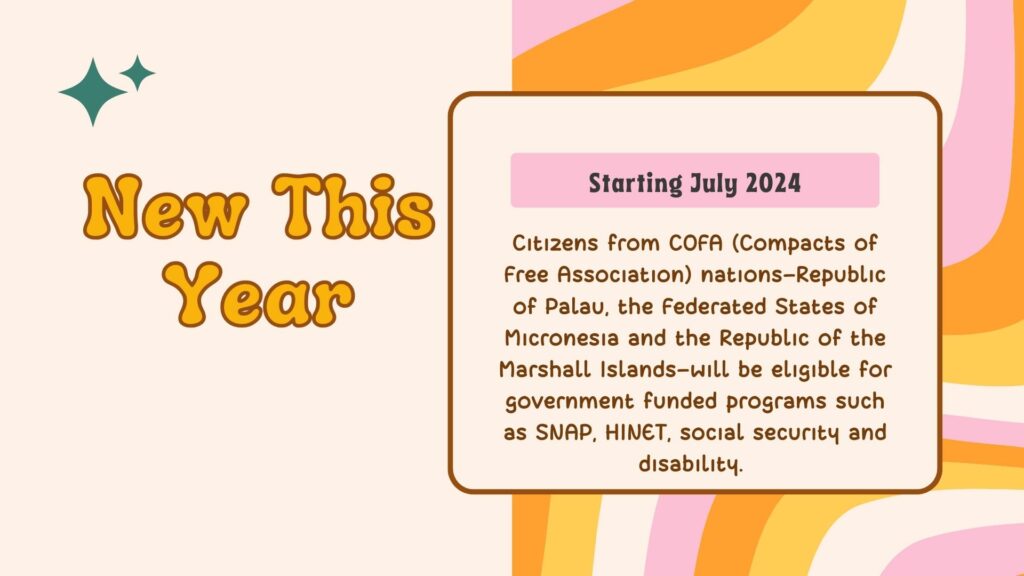
(Photo graphic by Sarah Burchard)
There are 80 students currently enrolled in HINET, according to Toombs. He said he helps, on average, four students a day to find out if they might qualify, and if they do, helps them apply and submit their application, saving them time and frustration.
Tumbaga received the results of his SNAP application less than a week after meeting with Toombs. About a week after that, he received his EBT card in the mail and could start purchasing groceries with it. He said he shops frugally in order to have some of the funds on his card carry over each month.
“I would not be able to do as well as I am in this nursing program without HINET,” Tumbaga said.
A month before school started this year, at orientation, Tumbaga shared information about the HINET program with the new nursing program cohort.
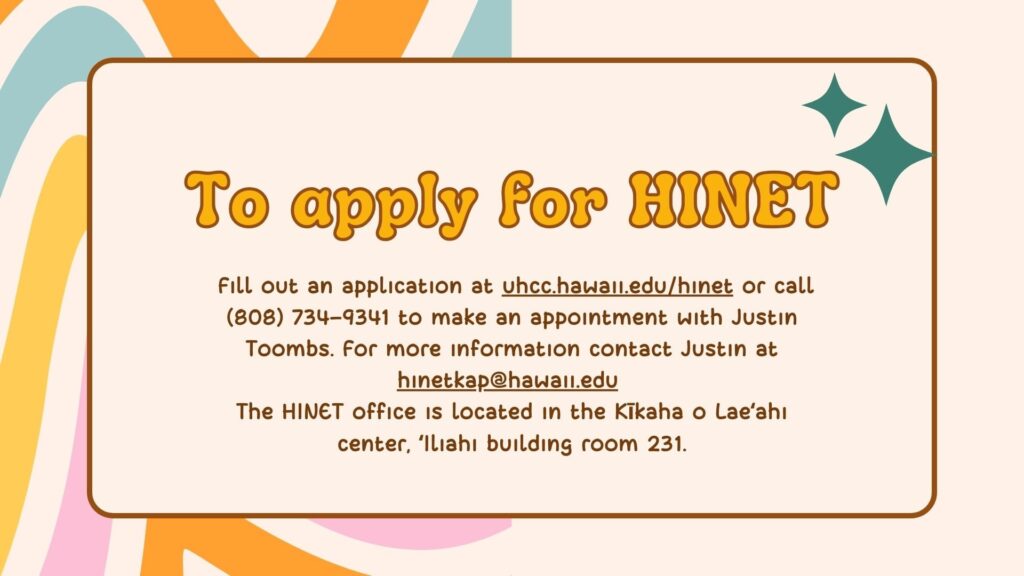
(Photo graphic by Sarah Burchard)
“I made sure they had [Justin Toombs’] email and where to find him,” he said. “And just don’t be shame, just try it.”

